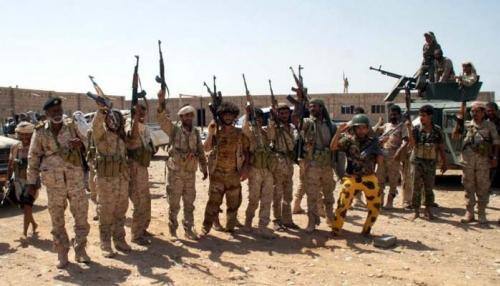- News>
- World
US strike kills 40 al Qaeda militants at Yemen camp

A US air strike on an Al-Qaeda training camp in Yemen has killed at least 40 fighters in a major blow to the jihadists who have been expanding their territory in the war-torn country.
Aden: A US air strike on an Al-Qaeda training camp in Yemen has killed at least 40 fighters in a major blow to the jihadists who have been expanding their territory in the war-torn country.
The extremists have exploited a security vacuum in the Arabian Peninsula nation since Iran-backed Huthi Shiite rebels seized the capital in September 2014, forcing the internationally recognised government to flee.
Tuesday`s strike in Hajr in the vast southeastern province of Hadramawt killed at least 40 militants and wounded 25 more, a provincial official told AFP.
A tribal source, who confirmed the toll, said the casualties were new Al-Qaeda recruits training at the camp, adding that "other fighters survived the strike."
Dozens of Al-Qaeda militants were seen rushing to hospital to donate blood, according to residents.
Yemen-based Al-Qaeda in the Arabian Peninsula (AQAP) is regarded by Washington as the network`s most dangerous branch, and has carried out deadly attacks on the West in the past.
It has taken advantage of the war between the Huthis and pro-government forces backed by a Saudi-led Arab coalition to expand in the south, seizing parts of Hadramawt including its provincial capital Mukalla in April last year.The United States has waged a long-standing drone war against AQAP militants, killing several of its leaders.
But Tuesday`s raid by American military planes was unusual because US strikes usually target a small number of suspected Al-Qaeda members while they are travelling in a vehicle.
"The Americans felt that Al-Qaeda has started to expand its influence in an unacceptable manner after it established fixed camps to train its supporters," said Mustafa al-Ani, an analyst at the Gulf Research Centre.
He said Tuesday`s strike was the first by Washington in nearly a year against a fixed Al-Qaeda position in Hadramawt.
The Pentagon said the camp was used by more than 70 fighters.
The raid "deals a blow to AQAP`s ability to use Yemen as a base for attacks" that threaten US citizens, Pentagon spokesman Peter Cook said in a statement.
"We continue to assess the results of the operation, but our initial assessment is that dozens of AQAP fighters have been removed from the battlefield," he added.
"It demonstrates our commitment to defeating Al-Qaeda and denying it safe haven."
Formed in 2009 when Al-Qaeda in Yemen merged with its Saudi counterpart, AQAP was behind the 2000 bombing of the USS Cole in Aden harbour that killed 17 American sailors.
The group also has a record of abducting foreigners, including US journalist Luke Somers and South African teacher Pierre Korkie who died during a failed rescue bid by US commandos in 2014.
More recently, AQAP claimed responsibility for the deadly January 7, 2015 attack in Paris on French satirical magazine Charlie Hebdo, targeted for its cartoons of the Prophet Mohammed.The group could strike back "if the human losses were as big as the Americans say," Ani warned.
AQAP, which often attacks both Yemeni loyalists and rebels, has expanded its presence in the country`s south in recent months while the Saudi-led coalition was focused on fighting the Huthis and their allies.
In the past few weeks, Al-Qaeda and the rival Islamic State group have tightened their grip on parts of the main southern city of Aden where the government has set up its temporary base.
The Arab coalition, which has waged a nearly year-long bombing campaign against the Huthis, began targeting jihadists for the first time last week in Aden.
In Abyan, another southern province, tribesmen captured a suspected local Al-Qaeda chief identified as Hilmi al-Zinji before handing him over to authorities in the government-held region, security officials said.
Fearing further strikes, Al-Qaeda militants on Wednesday evacuated public buildings they had occupied in Mukalla, and deployed five military vehicles around a hospital in the city where wounded militants were taken.
The World Health Organization says fighting in Yemen since March 2015 has claimed the lives of almost 6,300 people.
